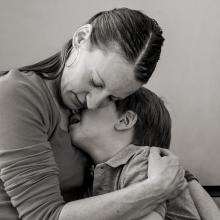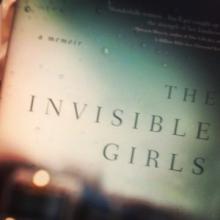breast cancer
For black women, our trauma is by nature political. Our very embodiment places us in a never-ending cycle of entanglement with systems, people, and policies designed to perpetuate violence and domination.
I flew to Houston over the weekend to speak at the Conspire Conference. I stood on a stage looking out over a few hundred students in grades 6-12, telling them my story of having breast cancer in my 20s.
I talked to them about what a dark season of life it was for me. The chemo and radiation were difficult, but on top of that I also lost a good friend to cancer, I was out of work for seven months, while in my apartment building’s parking lot, my car was hit by a truck, and my boyfriend broke up with me. After all of that, I ended up in the hospital with a raging lung infection and a good chance that I would die.
On the nights I spent in the hospital, I’d lie awake and stare at the ceiling and wonder where God was. “Do you see me? Do you love me? Do you care about what’s happening in my life?” I prayed. “And if you see me and love me and care about my life, why don’t you come down and make this all go away?”
One morning each week, I ascend the outdoor staircase on the side of our little church and enter the Upper Room – a cozy, loftlike space above the pastors’ offices set apart for prayer.
Once inside, I turn up the volume on my phone, choose “Taize” or “Gregorian Chants” from the iTunes playlists, pull out my knitting and begin to pray.
The subject of my silent prayers is usually the person for whom I’m making the scarf or blanket or shawl. The prayers are as simple as the stitches and after a minute or two, they become as steady and unconscious as my breathing:
“Lord, I lift to you your child.” And then I say his or her name.
Sarah Thebarge is the author of The Invisible Girls, a new memoir from Jericho Books. I was fortunate to get a few minutes to ask her a few questions about her touching, funny, compelling new piece of work.
Q: Your book is about Somali Refugees and also about your survival of breast cancer. How do you write one book about both things?
A: When I met the Somali mom and her girls on the MAX the first time, we had a lot of differences – different religions, ethnicities, skin color, and language. But as I developed a relationship with them, I realized that we had a lot in common at the core. Because I’d been a little girl growing up in a fundamentalist culture, where men buried you under yards of fabric and lists of rules and taught you that women were supposed to be silent. And I knew what it was like to be a refugee of sorts, because after I nearly died of cancer in my 20s, I sold everything I had and got on a plane with a suitcase of clothes and flew from the east coast to Portland, Ore., and started over. And so even though the narrative lines of the Somali refugee family and my cancer experiences seem disparate, they actually weave together well, because all this time, I’d been an Invisible Girl, too.
When Angelina went public with her decision to have a mastectomy, what she called “My Medical Choice,” we couldn’t stop relating to her as a source of identity. Everyone is taking sides, as is our custom. Whether we applaud or condemn her decision, either way we are not seriously discussing the issue. Because when it comes to Angelina the celebrity, our major issue is always getting an identity boost from her. It was probably a bit naïve for her to think that we would react in any other way. She is not our friend, after all, not a “person” in any real sense. She is a “personage,” a distant but tantalizing figure who captures our imagination and invades our identities.
Many people are wondering if Angelina did the right thing. I’ve been asked it a few times in the last 24 hours and my family and friends know I don’t traffic in celebrity gossip very often! Yet they want to know what I think, and because I have not been either an Angelina fan or a hater, my reaction is subdued. I have nothing to win or lose by praising her or by trashing her, for that matter. I don’t feel scandalized or in a position to judge. She made a personal decision and because she’s a personage she went public with it; it’s as simple as that.
On Tuesday, Angelina Jolie became the face of preventative mastectomy. In a beautifully worded New York Times op-ed, the actress said she opted for a double mastectomy after learning she had an 87 percent risk of breast cancer, adding, “On a personal note, I do not feel any less of a woman. I feel empowered that I made a strong choice that in no way diminishes my femininity.”
In the hours following the publication of Jolie’s story, others came forward with their own stories, and the media coverage since has been non-stop. However, when a similarly famous actress, Catherine Zeta Jones, came forward with her diagnosis of bipolar II disorder, it made only a news ripple compared to the crashing wave of coverage Jolie’s disclosure has received. Don’t get me wrong — Jolie’s announcement is hugely significant and part of a much-needed conversation. But mental illness should be afforded the same level of discourse. Perhaps talking about mental illness isn’t as fascinating as talking about an actress’s decision about her breasts, but talk about it we must — and unfortunately not even a courageous disclosure made by a beautiful and famous actress like Catherine Zeta Jones is enough to get that conversation started.
Life is hard. It is full of pain, disappointments, and challenges of every kind. When hard times come our way, we often ask, Why me? And the answer comes: Why not you? We sometimes think that God has forsaken us, and sometimes God is silent. It is difficult to remember the Biblical wisdom that explains why believers, children of God, the beloved of God go through difficult times.





